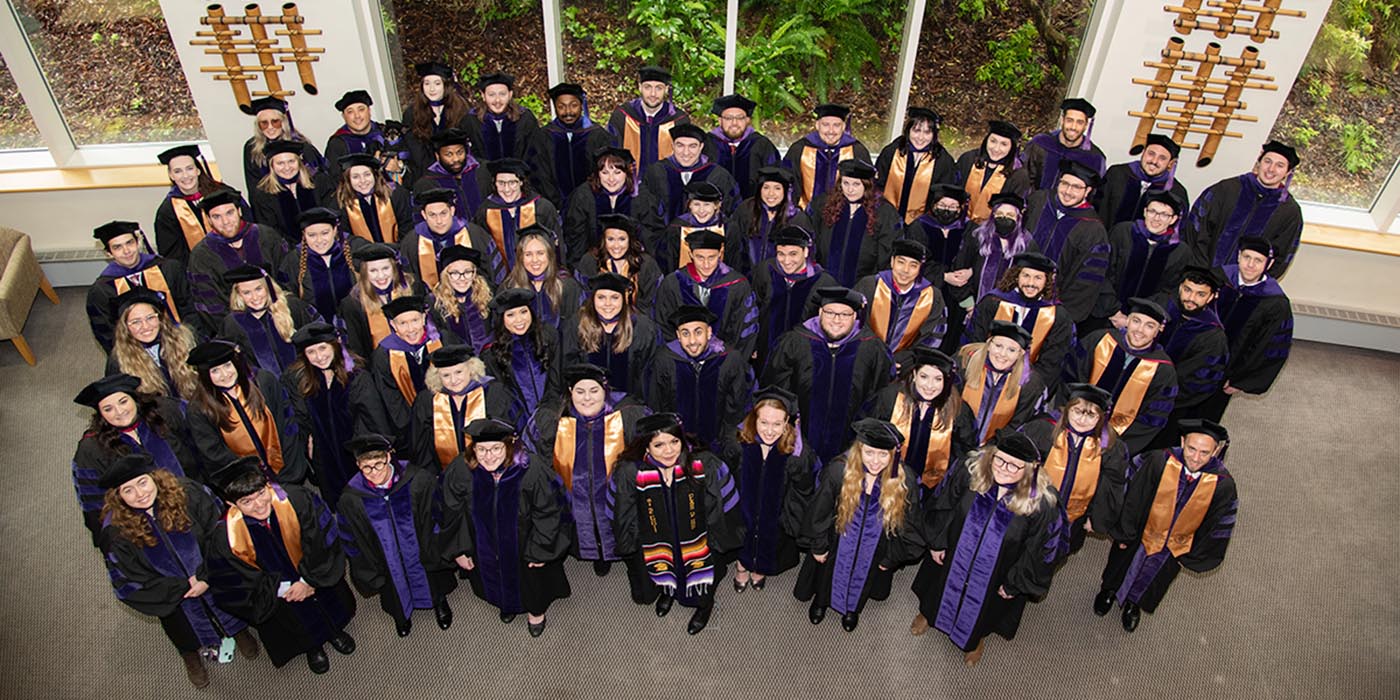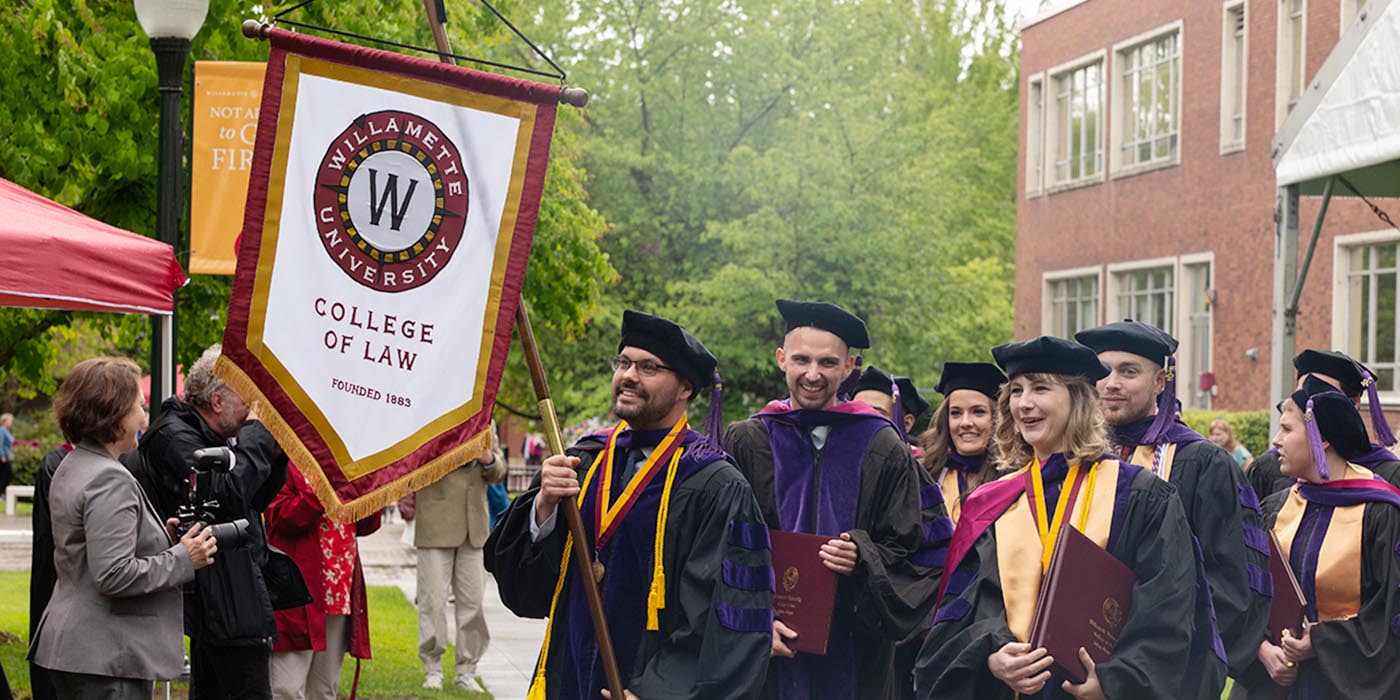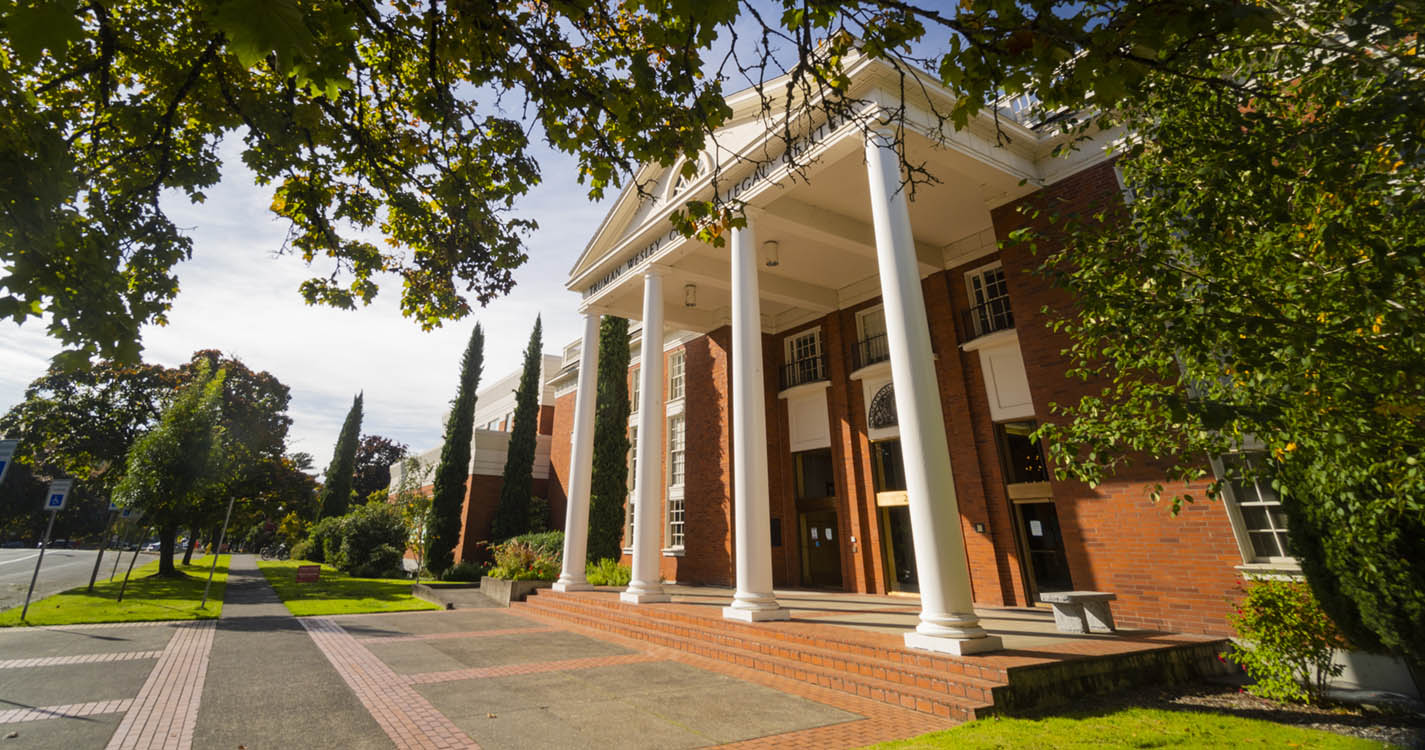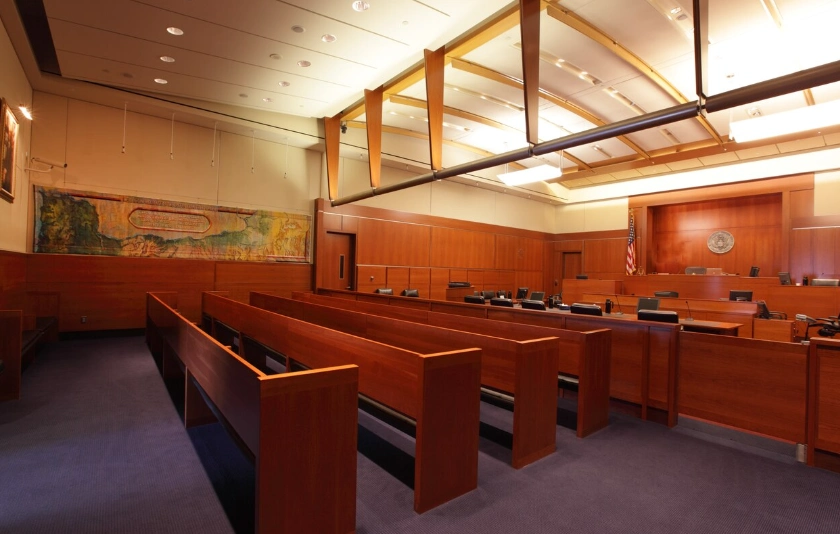It was intended to be quick. When Willamette Law closed its doors March 16, 2020, staff anticipated reopening just a month later. There was still time for on-campus finals, graduation and bar prep. But, that’s not what happened.
By the time the fall of 2020 came around, Willamette Law administrators were more than familiar with COVID-19. Earlier that spring, when the entire university had quickly gone remote, professors learned to teach from their homes and students holed up in apartments.
In early summer, the Dean’s Suite underwent its own transition, welcoming new Dean Brian Gallini and sending Dean Emeritus Curtis Bridgeman off to a well-deserved sabbatical. Leading the charge, Gallini and his colleagues imagined a three-lane approach to law school in the autumn.
The first lane took an optimistic outlook, holding hope that the law school would be fully open for all students, with masking and social distancing required. Students could take classes virtually, attend them in-person or choose a hybrid option combining both.
With the second lane, the school was prepared to go fully remote at any point in time. All classes would be taught remotely, but the building would remain open as a quiet study space and resource. In the third lane, and perhaps the least desired, everyone would go fully remote, including staff, and students would not have access to the building.
Leading up to the fall, the situation evolved almost daily.
The class of 2022 becomes the “pandemic class”
Some of the first to be affected by the pandemic, those in the class of 2022 were midway through the second term of their 1L year when everything changed. They had just gotten comfortable — making friends with classmates, getting to know professors and completing a whole semester of a brand new educational experience. Then, in a total whirlwind, the rug was pulled out from under them, says Olivia Courogen JD’22.
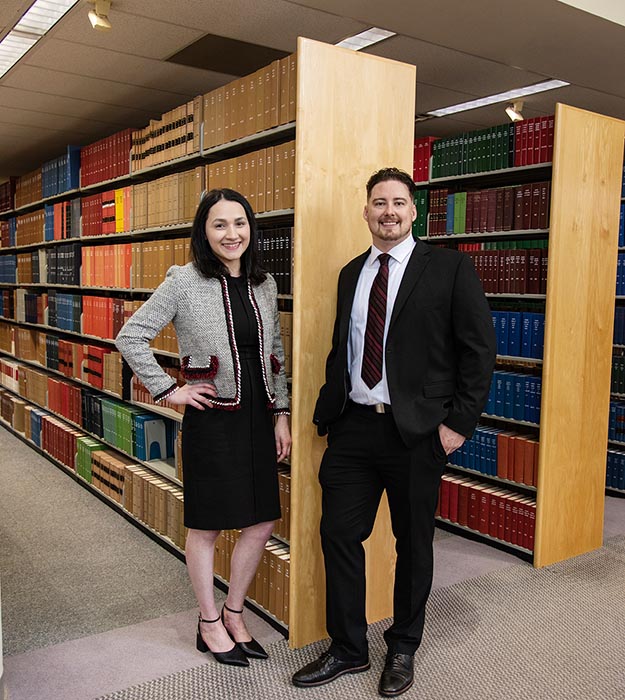
Like the three-lane approach the school took to mitigate COVID, Kyle Sessions JD’22 says there were three groups of students reacting to the pandemic. There were those who were severely disappointed and couldn’t fathom learning online. A second group felt resigned to the situation, the “it is what it is” folks, and a third group seemed to prefer a remote atmosphere and the ability to attend school from home.
Sessions put himself in the first group. As someone who came to law school without any legal connections, he didn’t know what to expect when he first arrived on campus. His first term was difficult — not what he expected, he says. But after finishing his studies in the fall of 2019, he knew he was going to be OK moving forward. When the pandemic hit and everyone began learning remotely, it was like his first few months were on repeat.
“Everyone was initially pretty disappointed,” Sessions says. “For someone like myself who needs more social support in order to feel like I’m not drowning in schoolwork, it was really tough.”
Choosing Willamette had been easy for Courogen. She knew she wanted to practice law in Oregon and thought it was sensible to attend law school in the state. After attending an admitted-student luncheon with Dean Curtis Bridgeman and other faculty, “it just clicked,” she says. She and her parents spent an hour talking to Dean Emeritus and Professor Symeon Symeonides, and he made a great impression on her.
Ready, yet nervous, to take on her 1L year, she was intentional about choosing where to live and how to set her schedule. Following the first term, she felt she finally knew what she was doing. After going remote, she fell into more of the “this is how it’s going to be” group.
While the 1Ls finished their first year virtually, administrators watched the changing situation. Their decisions were carefully weighed, balancing health, safety and state guidelines. Though a quick decision was made to close the doors of the law school, it would take many more conversations and months to reopen them.
A virtual second year
As the fall of 2020 approached, it was clear it wouldn’t be a normal school year. Leadership decided it was important to have the new class of incoming first-year students on campus to get them acclimated to law school.
But for Courogen and Sessions, that meant their entire second year was remote. While everyone had quickly become well-versed in online learning, there were new challenges to overcome.
“When we initially went online in the spring, we had already had two months of class with those professors,” Courogen says. “But when we resumed classes in the fall, we had all new professors that we had never met in person. We were really starting at zero, and we had to build relationships with those professors solely on a virtual platform.”
On top of that, the first-year law students are typically organized into sections with the same group of around 60 people. As second-year, now-remote students, they encountered another section of classmates, in addition to third-year students they didn’t know at all.
Classes were different. Students were in their homes, sharing spaces with family members who were also working or completing school remotely. A classmate of Courogen sometimes held a roommate’s baby while attending class. Professors were understanding and flexible, learning alongside their protegees.
In reality, it was difficult for most everyone. Though some preferred to skip the commute to campus or go to class online, there were still bumps and hiccups as everyday life and school became a never ending, changeless cycle.
In student groups and in classes meeting virtually, there was a general understanding of “this isn’t what we signed up for,” Sessions says. Everyone was affected in a myriad of ways and had different thoughts about what the school should be doing. Although he personally was frustrated, he thinks Willamette did the best it could while considering the options available.
The last year of law school
In the fall of 2021, in their final year of law school, it happened. For their last semesters, the third-year students walked through the front doors of the Truman Wesley Collins Legal Center like they had in the fall of 2019. The anxiety of their first term was gone, yet they entered with masks on their faces and the weight of the preceding two years on their shoulders.
Each had mastered Zoom, and more importantly, a majority of the legal skills needed to graduate, and the hoped-for future within the walls of the law school was finally a reality.
Courogen says she gained a new, adaptable skill set by going online, but she was grateful to be back on campus in all in-person classes. She missed the “drive-by moments” in the hallways before and after class, seeing and chatting with classmates. She is now more appreciative of every interaction, she says.
Though she couldn’t have predicted a global pandemic, she anticipated a rigorous three years of school, and that’s what she got. The unexpected challenge, she says, was how frequently the bar was raised, despite learning remotely.
“Every semester got more difficult and more hectic,” she says. “I wanted to come in and find my groove, then cruise through my second and third years. That is so far from what happened, but that’s one of the great things. It was always changing, constantly forcing me to work harder and develop new skills.”
For Sessions and his learning style, the move back to in-person classes was welcome. He was discouraged while studying at home but says there was a silver lining. During that time, he felt he gained valuable perspective about his classmates.
“All those students who enjoyed doing law school remotely are the same type of student who may have been unable to access law school or have a good experience there for the last 139 years,” he says. “It made me realize there isn’t a lot to complain about, because somebody’s getting the better end of the deal that maybe hasn’t always.
“Some might not have made it through, but because of remote learning, they could keep going to school and learn better in that environment. It’s not all about me in the end.”
Courogen also found ways to look at the bright side, noticing the ways Willamette’s leadership focused on moving forward. Despite difficulties, Willamette found ways to make everything work.
She can’t remove the pandemic from her class’ years in law school, and she and her classmates won’t soon forget it.
“Attending law school during a pandemic forced us to develop the skills that are relevant for life in general, but especially for our legal careers,” she explains. “It will always be a significant part of our law school experience.”
